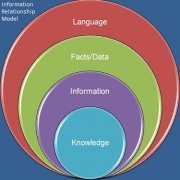Week That Was in Ethical Systems, 1/27-2/2
The Ethics & Compliance Officer Association will offer a first-of-its-kind online professional development course serving the ethics and compliance field: ECOA Global Law. Ethical Systems contributor Jeff Kaplan led the development of the seven-week program, which will begin on April 8. The course covers such topics as anti-corruption, money laundering, governance, securities, intellectual property, employment law, competition law, and trade sanctions.
“I think this constant lecturing on ethics and integrity by many stakeholders is probably the most frustrating part of the equation,” said the chief executive of UBS, “because I don’t think there are many people who are perfect.” While it is true that human beings cannot be made perfect, we believe it is possible to reduce the risks of imperfect decision-making by approaching the problem of business ethics from a systems perspective. “Constantly bashing banks” is not a solution to the ethical failures of various institutions, but CEOs should not dismiss the concerns of the public out of hand. The current atmosphere of distrust regarding banks and big businesses should be taken as an opportunity to engage in dialog and education on the possibilities of reform. Our goal at Ethical Systems is to address business ethics in a constructive manner by making the best scientific research available to all stakeholders.
The Cost of Corruption is a Serious Challenge for Companies, in The Guardian
Harriet Kemp of the Institute of Business Ethics writes on prevalence of bribery and corruption across many business sectors. Corruption poses a great cost not only for many companies around the globe but for the societies in which they operate. While meeting this challenge can be difficult in a competitive environment, there are steps businesses can take to strengthen their leadership and culture against unethical temptations. The IBE has also developed a free app, the Say No Toolkit, “which provides the practical guidance to recognize a difficult situation and to do the right thing in response.”
Detecting Fraud and Growing Margins in Retail Using Analytics, in The Wall Street Journal
New data analytics technologies can be an important tool in reducing fraud for retailers (and, we expect, for a wide variety of businesses). The article discusses a few of these innovations as well as the components of a holistic framework aimed at managing fraud (drawing on not only technology but culture) and the steps companies can take right now to reduce risk.




